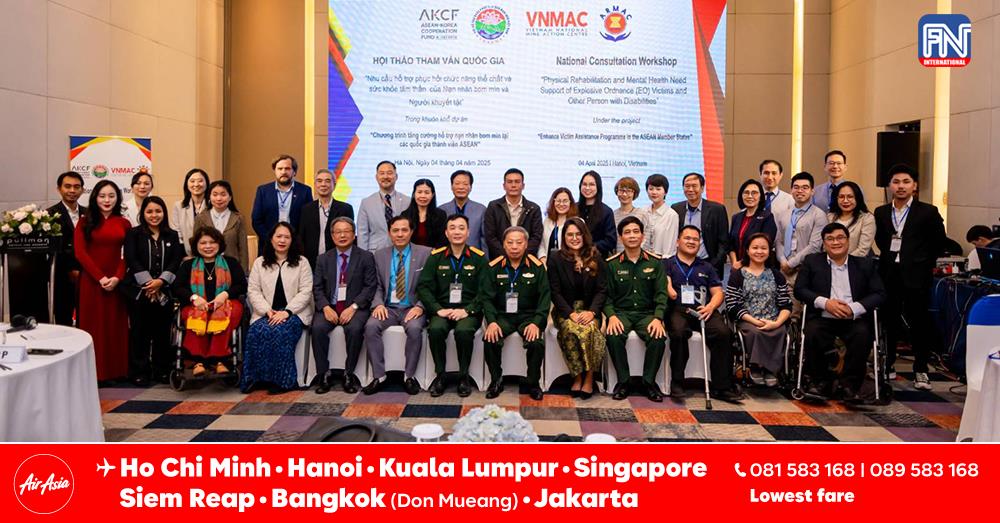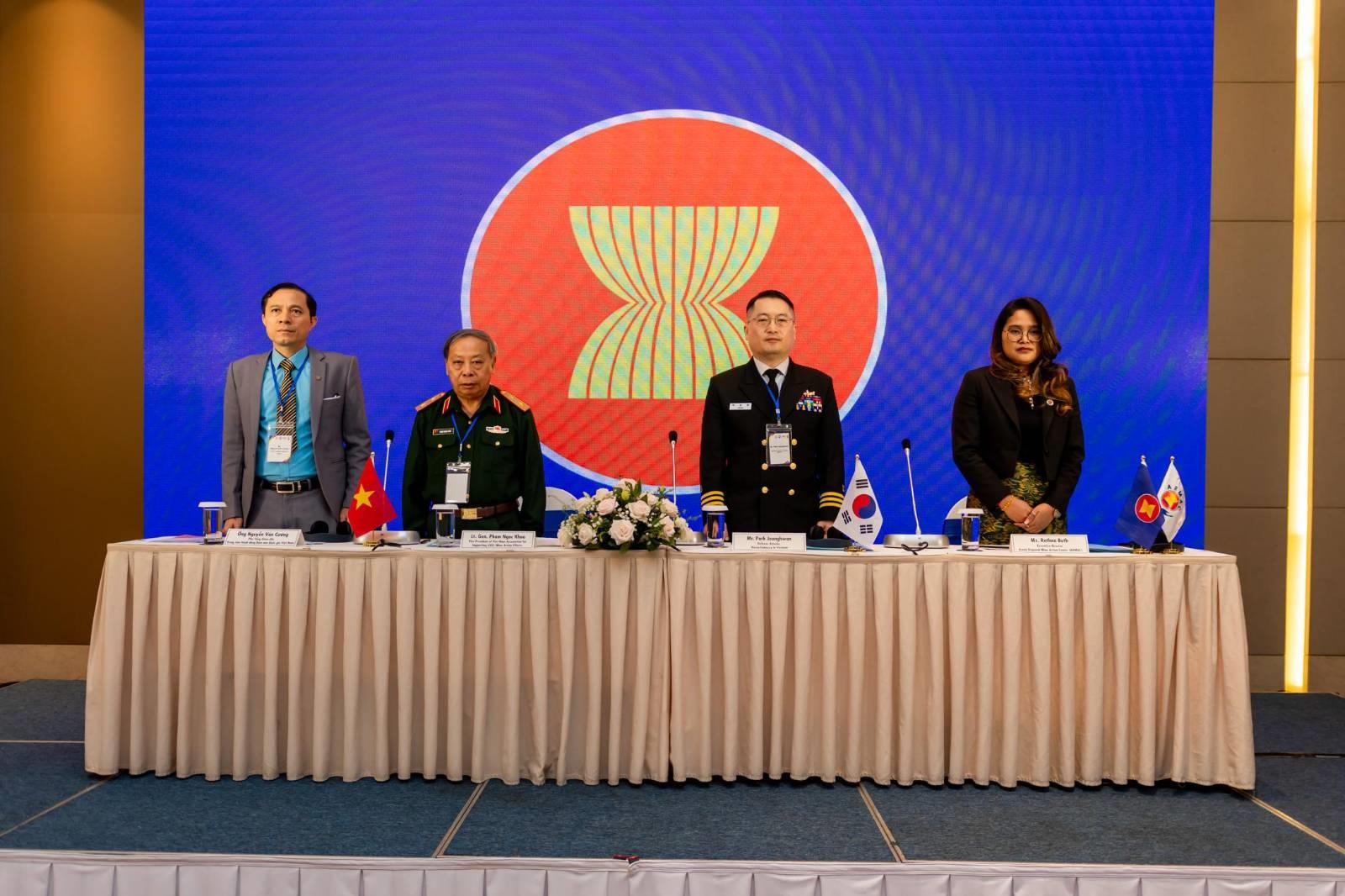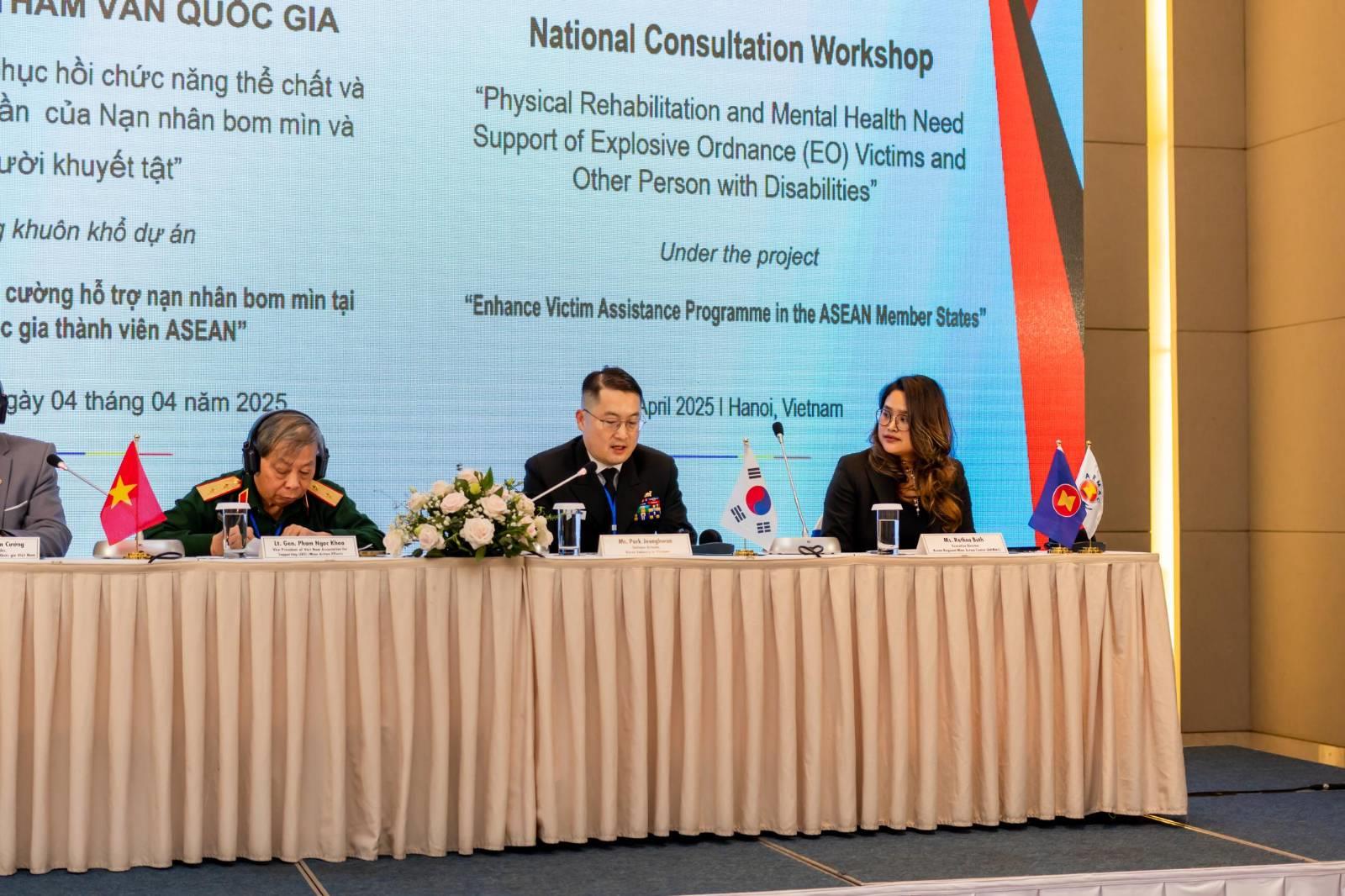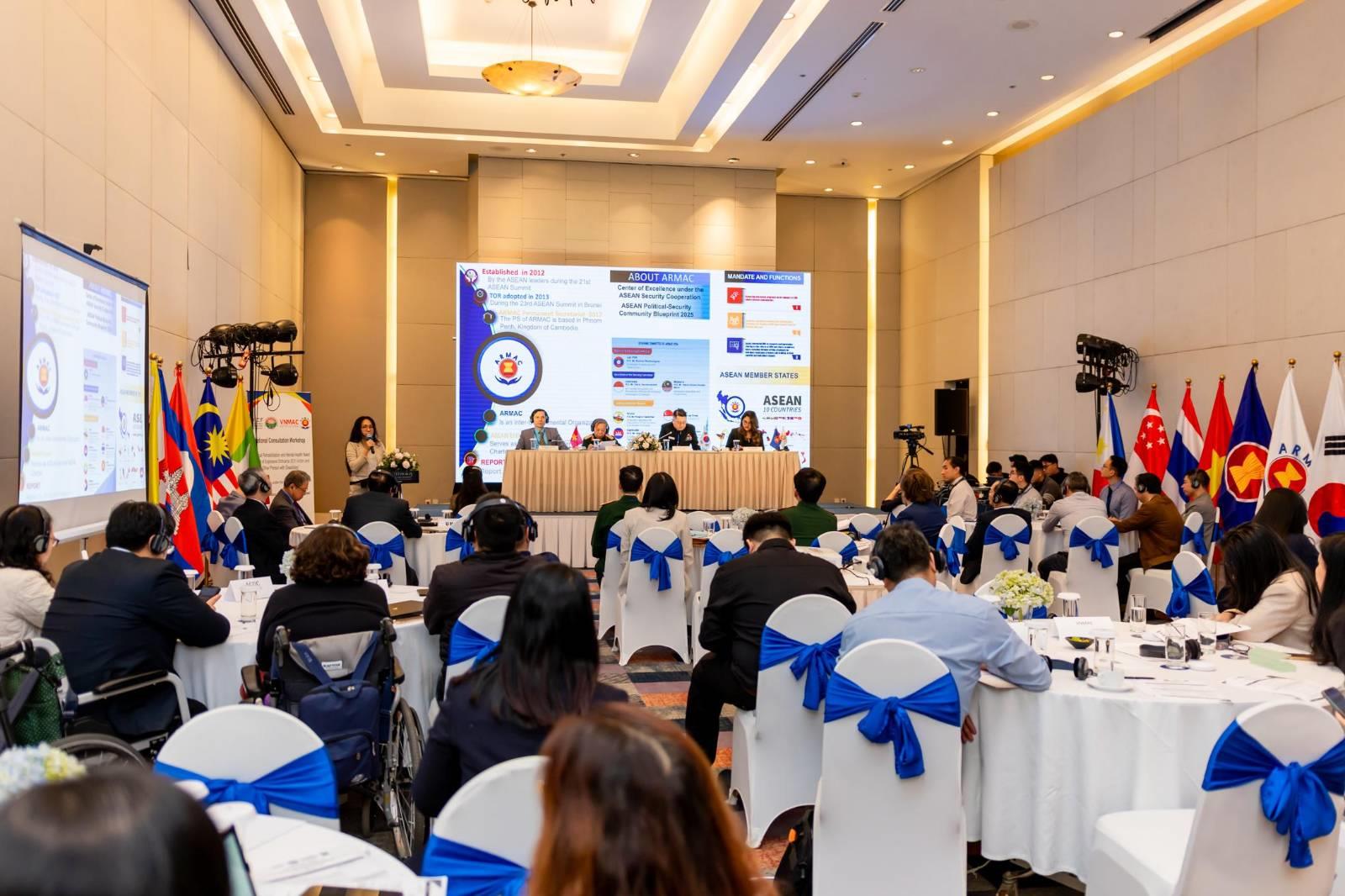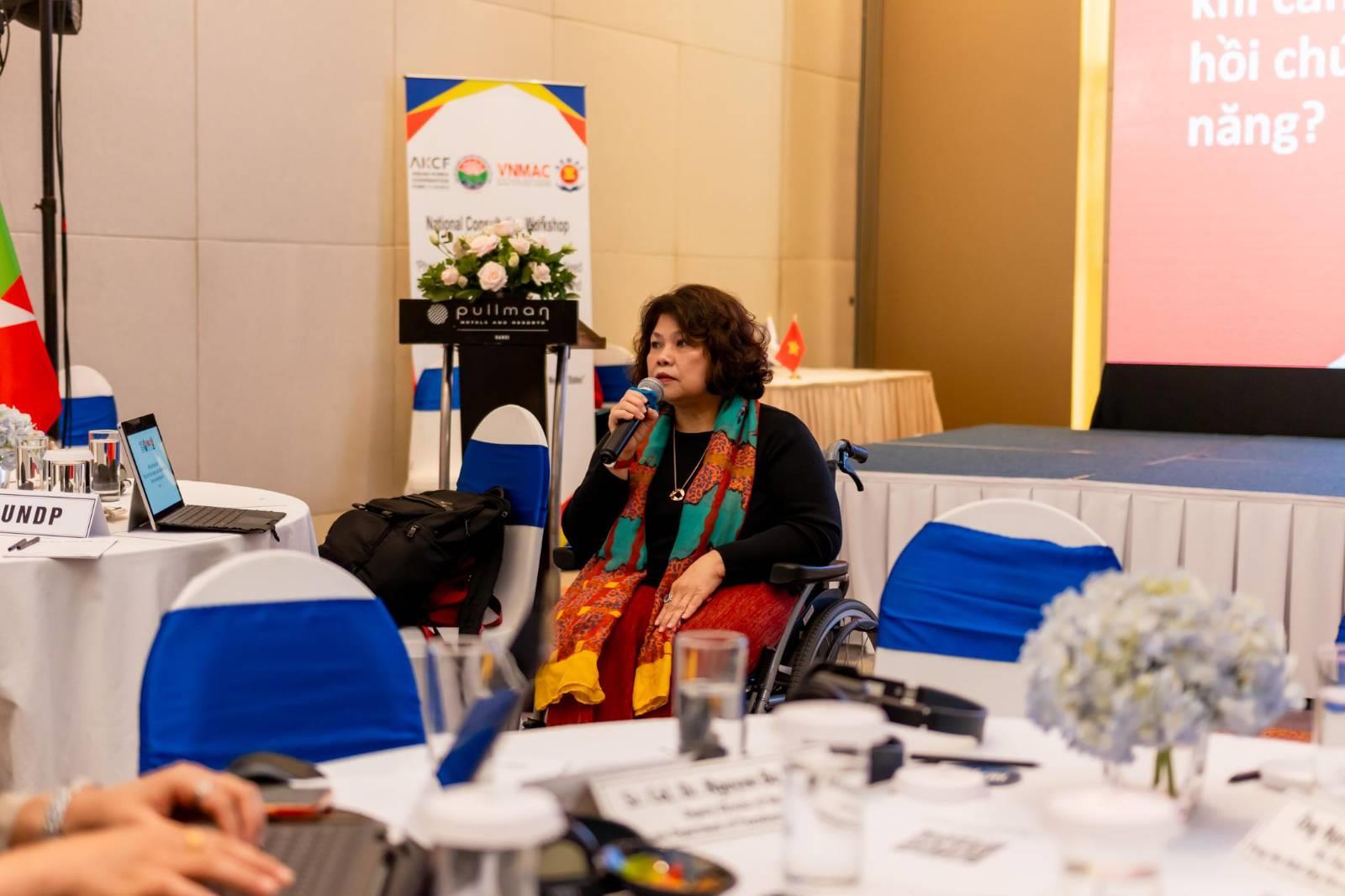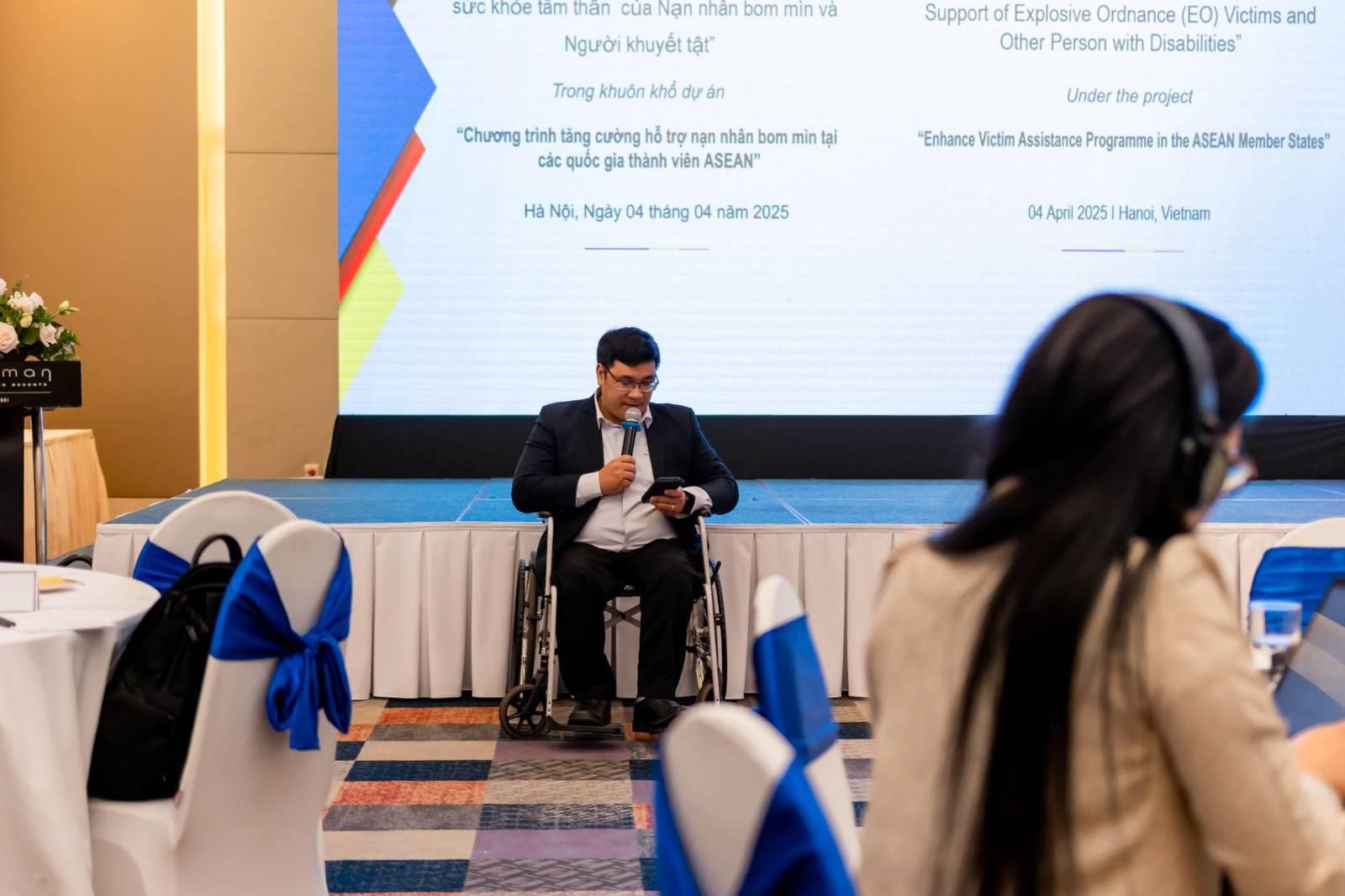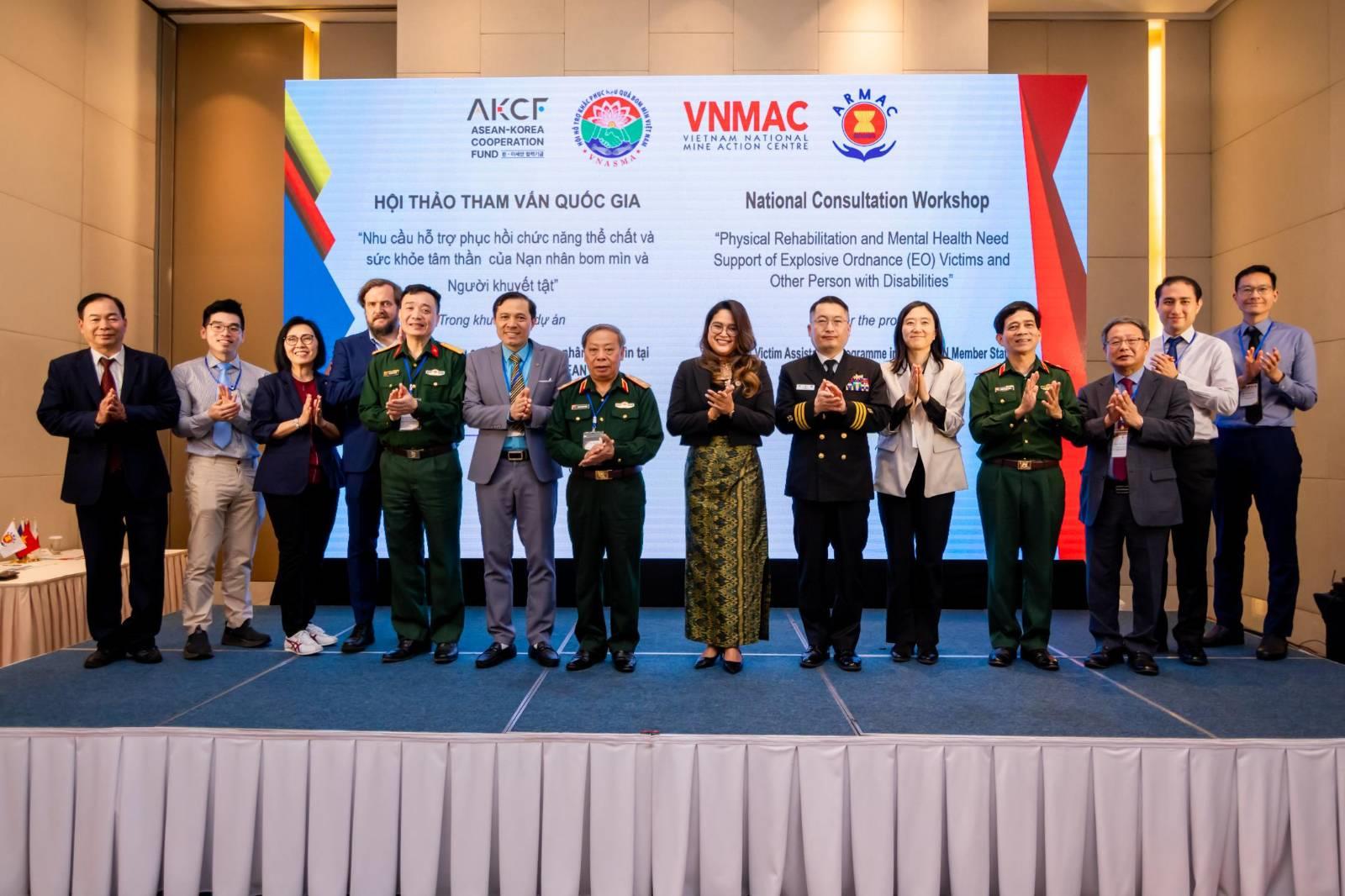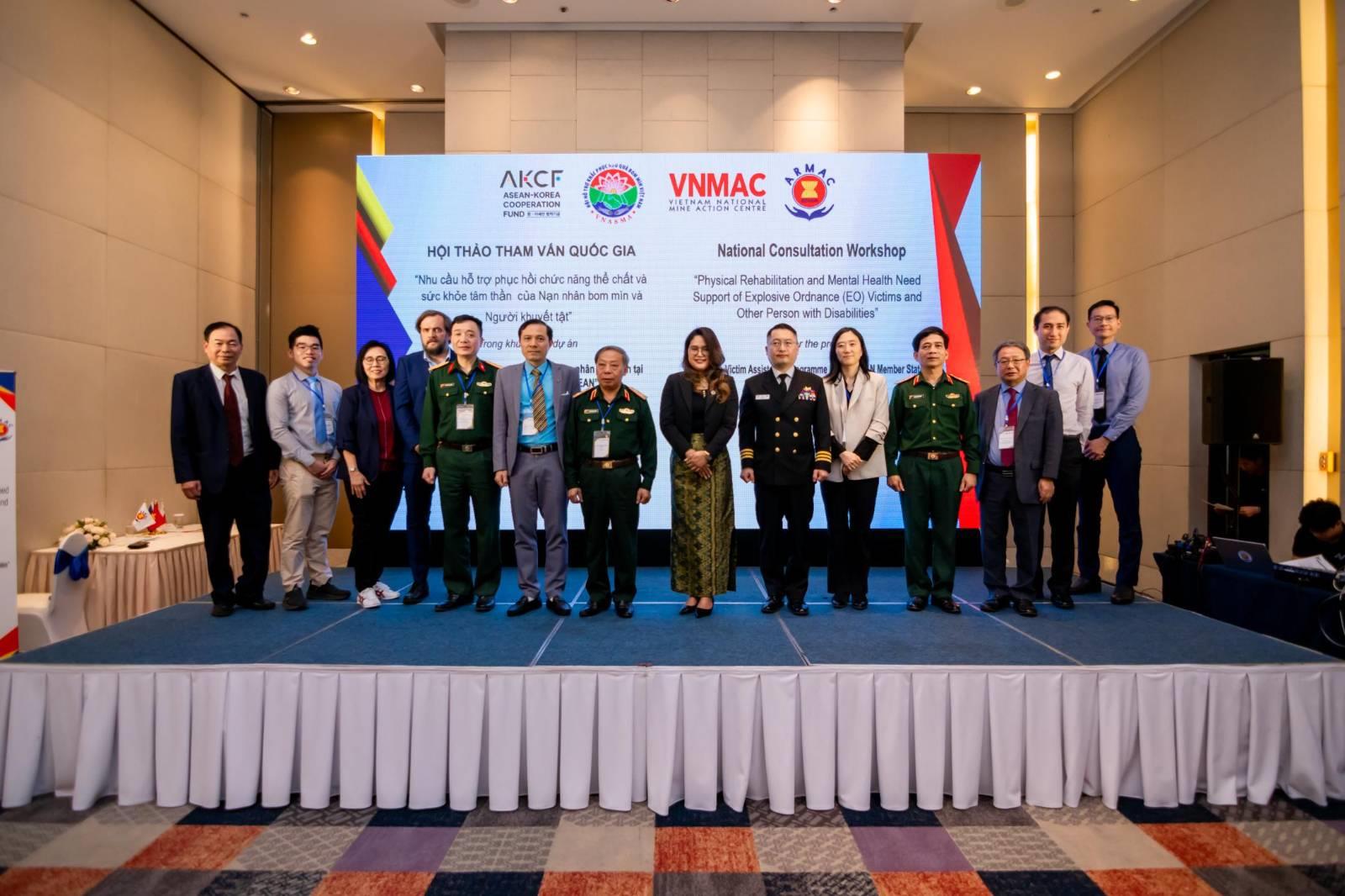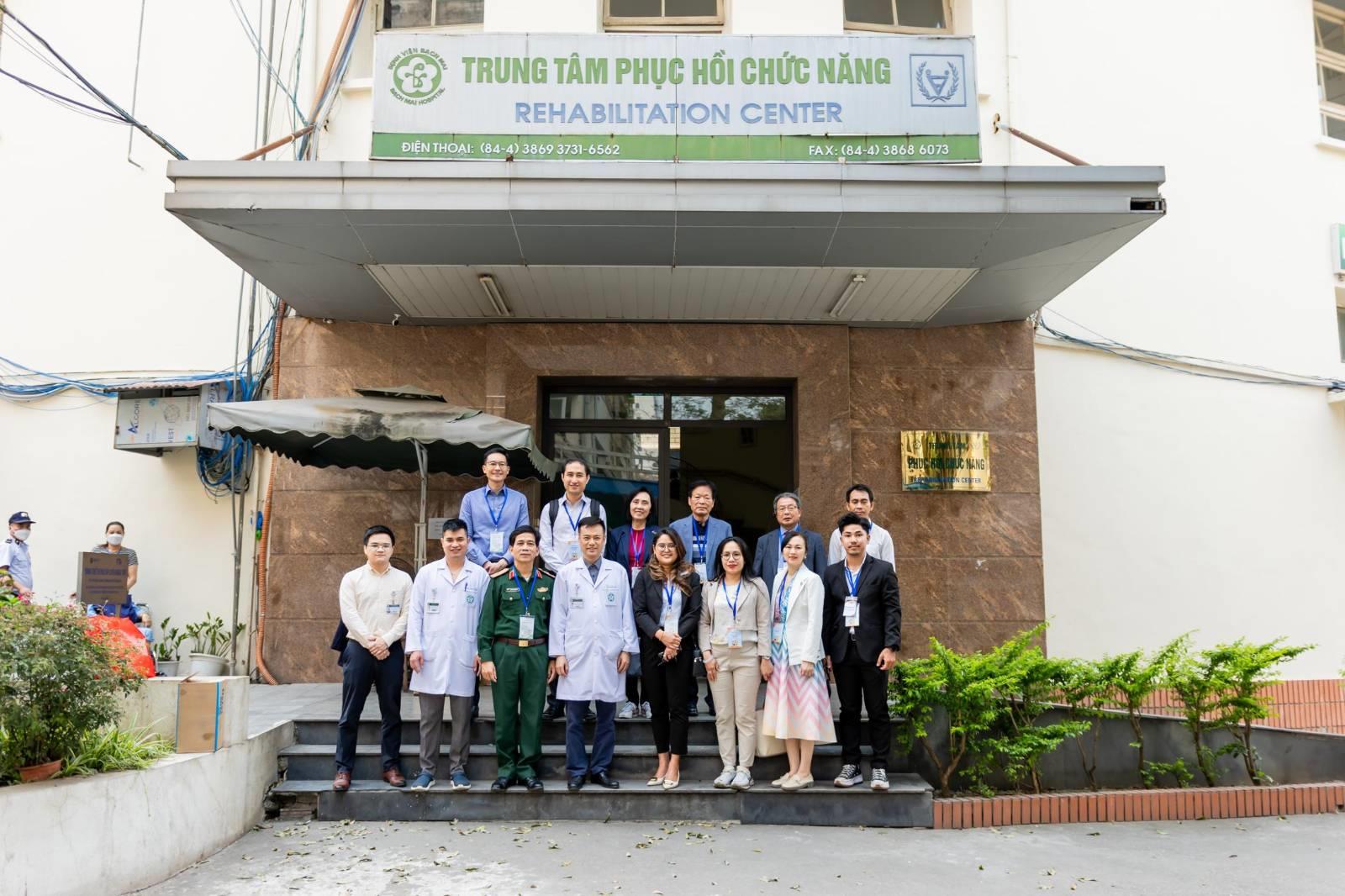Ha Noi (FN), Apr. 7 — The ASEAN Regional Mine Action Center (ARMAC) hosted a National Consultation Workshop on the Feasibility Study on Physical Rehabilitation and Mental Health Needs Support for Explosive Ordnance (EO) Victims and Other Persons with Disabilities (PWDs) in Ha Noi, Viet Nam, on 4 April 2025. The workshop is a pivotal step in ARMAC’s broader mission to enhance victim assistance across ASEAN Member States (AMS), ensuring that survivors of EO incidents receive the comprehensive support they need.
The event, organised in partnership with the Viet Nam Association for Supporting UXO/Mine Action Efforts (VNASMA) and the Viet Nam National Mine Action Center (VNMAC), drew key stakeholders from across sectors, including government agencies, international organizations, non-governmental groups, and representatives of the disability community. Additional technical and research expertise was provided by SingHealth (Singapore), Peace Sharing Association (PSA) and Yonsei University (South Korea), reinforcing the region’s commitment to evidence-based approaches in victim assistance. This important initiative has been made possible with the generous support of the Government of the Republic of Korea (ROK) through the ASEAN-Korea Cooperation Fund (AKCF), whose unwavering commitment continues to enable and advance our shared efforts to support EO victims across the region.
Opening the workshop, Rothna Buth, Executive Director of ARMAC, emphasized the fundamental principle that victim assistance must go beyond medical treatment. “This is about restoring dignity, fostering independence, and ensuring inclusion,” she stated. “We are here not just to analyze needs, but to translate research into tangible improvements that empower victims and enable them to rebuild their lives.”
A Regional Effort to Strengthen Victim Assistance
The Viet Nam study builds upon ARMAC’s ongoing research and engagement in Cambodia, Myanmar, Thailand, and Lao PDR, underscoring the organization’s regional commitment to understanding and addressing the needs of EO survivors. This initiative is part of a broader effort to develop a comprehensive and rights-based victim assistance framework that integrates medical care, psychosocial support, and socioeconomic reintegration, ensuring that survivors are not left behind.
“Today’s discussions have been invaluable,” Buth noted. “By bringing together policymakers, experts, and the disability community, we are not only identifying service gaps but also crafting actionable recommendations. The success of our collective efforts will be measured by how well we translate these insights into policies and programs that make a real difference in people’s lives.”
Bridging Gaps in Rehabilitation and Mental Health Support
The Feasibility Study aims to assess Viet Nam’s existing victim assistance landscape, identifying critical service gaps and areas for improvement in both physical rehabilitation and mental health care. Key focus areas include:
● Expanding access to prosthetics and rehabilitation services for EO survivors, particularly in rural and underserved communities.
● Strengthening mental health and psychosocial support systems, ensuring that survivors receive culturally appropriate counselling and trauma care.
● Promoting economic empowerment and social inclusion, enabling EO survivors and persons with disabilities to participate fully in their communities and the workforce.
The workshop convened 56 participants, including representatives from government agencies, development organizations, rehabilitation centers, civil society, and the private sector. Their collective expertise and input will be instrumental in shaping policy recommendations that are practical, inclusive, and impactful.
A Call for Continued Regional Collaboration
In her closing remarks, Buth reaffirmed ARMAC’s commitment to regional cooperation. “I extend my deepest gratitude to our partners—VNASMA, VNMAC, SingHealth, PSA, Yonsei University, and all participants—for their dedication to this cause,” she said. “This is a shared responsibility, and together, we will continue working to ensure that no survivor is left behind.” Their partnership, along with AKCF support, has been instrumental in advancing victim assistance programs across the region and ensuring meaningful impact.
As the workshop concluded, Buth expressed her hope for continued collaboration, urging participants to carry forward the momentum of the discussions. “May you travel with the same sense of purpose and commitment that you have demonstrated here,” she said. “And may our collective efforts bring lasting change to the lives of EO survivors and their families.”
About ARMAC:
The ASEAN Regional Mine Action Center (ARMAC) is a regional center of excellence established under the ASEAN framework to support Member States in addressing the humanitarian and developmental impacts of explosive ordnance. ARMAC fosters regional cooperation, builds technical capacities, and provides expertise to ensure that all affected communities are equipped to recover from the effects of war and move forward in peace and security.
=FRESH NEWS
